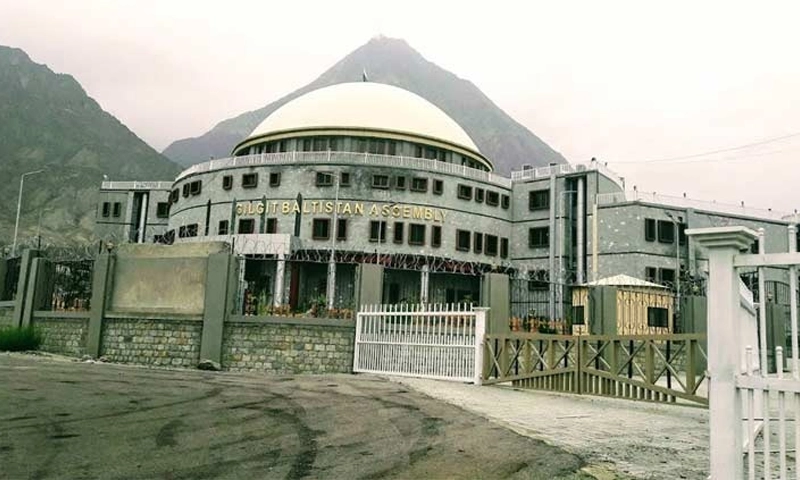- Web Desk
- Feb 19, 2026
Raise in Gilgit Baltistan Assembly employees’ allowances reversed
-

- Tanveer Abbas
- Jun 05, 2025

GILGIT: The Gilgit-Baltistan Chief Court on Thursday declared the increase in the allowances of the Legislative Assembly Secretariat employees of different pay scales as “unlawful”.
According to the written court verdict, the Gilgit-Baltistan Assembly Finance Committee on December 16, 2024 issued three notifications for increasing these allowances.
Hence, the incentive allowance had been enhanced to 150 per cent of running basic pay scale of 2022 in lieu of the incentive allowance at 100 per cent on initial basic pay scales of 2017 for all ex-cadre officers of BS-17 and above working against sanctioned positions, with effect from November 20, 2024.
At the same time, the secretariat allowance (special allowance) of 30 per cent was enhanced to 75 per cent on the initial basic pay scale of 2022 for employees of BS-01 to 16 of the Assembly Secretariat with effect from July 1, 2024.
Similarly, the utility allowance for gas was raised to 20 per cent and for electricity by 10 per cent of the running basic pay for all employees from BS-01 to 22, with effect from November 1, 2024.
However, the Gilgit Baltistan finance secretary on March 16, 2025, took notice of the issue and brought it to the attention of the Chief Minister. Simultaneously, he notified the Gilgit-Baltistan Accountant General Pakistan Revenues (AGPR) to cease payment of the revised allowances.
CHALLEGNED
In this scenario, the 112 employees of the Assembly Secretariat and Gilgit Baltistan Assembly secretary filed two separate petitions, challenging the notification issued by the Finance Department on March 10, 2025. The court merged both petitions and heard the case together.
During the hearing, the employees argued that the Finance Department had unlawfully denied them the benefits they were entitled to.
At the same time, the chief minister on March 11, 2025 ordered a fact-finding inquiry into the matter.
The petitioners contended that the Assembly Secretariat was a separate entity under the Gilgit-Baltistan Order, 2018, and entitled to all financial benefits as decided by the competent authority.
It was argued that the Finance Department had overstepped its powers and its actions were illegal and contrary to the provisions of the law governing the Assembly Secretariat’s autonomy in managing its financial affairs.
Meanwhile, the assembly secretary contended that the inquiry was unwarranted, as the allowances had been approved by the assembly finance committee, and the Finance Department had no jurisdiction to revoke them.
In response, the additional advocate general contested the claims made in the cited petitions and the supporting arguments. He submitted that the finance committee was competent to grant and enhance allowances for the secretariat employees within the authorized appropriation for a financial year.
ADDITIONAL CHARGE
He further argued that if the finance committee, during the middle of a financial year, exercised its powers and exceeded the limits of appropriation, thereby imposing an additional charge on the Provincial Consolidated Fund, such actions would require authorisation under Article 71 of the Order 2018.
The law officer also contended that while the finance committee could authorise expenses within appropriated funds for the assembly and secretariat, it could not extend new or additional expenditure for the perks and privileges of secretariat employees in anticipation of future funding.
In this scenario, he prayed for the dismissal of the two petitions.
After considering the arguments and reviewing the case records, the court ruled that the enhancements in allowances, as outlined in the notifications of December 16, 2024, imposed an additional burden of Rs85 million on the Gilgit-Baltistan Consolidated Fund.
Since this expenditure was approved outside the parameters of Article 71(5)(b) of the Gilgit Baltistan Order 2018, the court declared the notifications illegal. The court set aside the notifications dated December 16, 2024, and ordered that all amounts received under the notifications should be recovered.
The court also stated that no further fact-finding inquiry was needed, as the legal matter had been sufficiently addressed.




